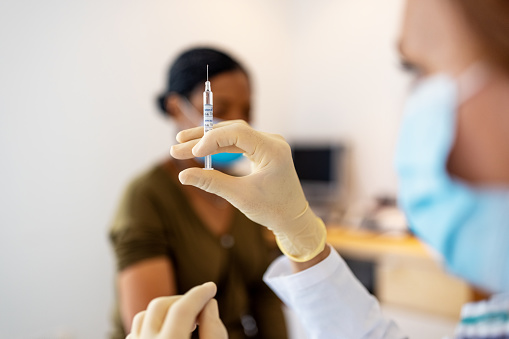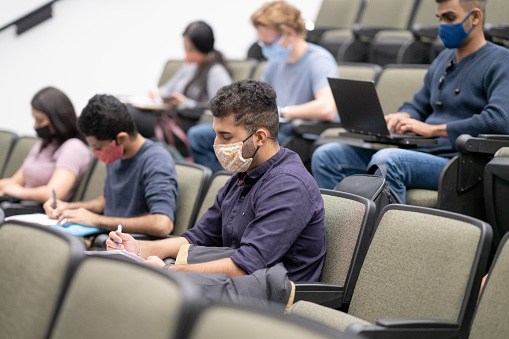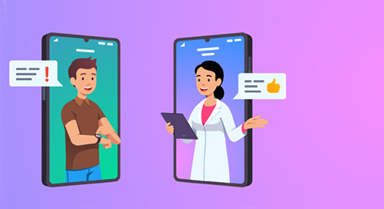Immunization is a global health and development success story, saving millions of lives every year. We now have vaccines to prevent more than 20 life-threatening diseases, helping people of all ages live longer, healthier lives. Immunization currently prevents 3.5-5 million deaths every year from diseases like diphtheria, tetanus, pertussis, influenza, and measles.1
What exactly are Immunizations?
Immunizations, also called vaccines or vaccinations, contain medicine that causes the body to make antibodies. These antibodies recognize and fight a disease if you are later exposed to it. Vaccines teach our bodies how to respond to a virus to prevent us from becoming severely ill.2 They also help reduce the spread of disease to others, preventing sudden outbreaks of a disease, called epidemics.
Vaccines are most often administered as a shot (injection). But some are administered by mouth as a pill or liquid. Still others may be given as a spray (aerosol) into the nose.
Why should I get immunized?
Immunizations save lives. Reasons to consider getting immunized include:
- They cost less than getting treated for the disease.
- The risk of getting a disease is much greater than the risk of having a serious reaction to the vaccine.
- They are often needed for entrance into school or day care. And you may need them for your job or to travel to another country.
Why else should I get vaccinated?
Even though many serious vaccine-preventable diseases are uncommon in the United States, some are common in other parts of the world. Even if your family does not travel internationally, you could come into contact with international travelers anywhere in your community. Children who don’t receive all vaccinations and are exposed to a disease can become seriously sick and spread it through a community.
Are vaccines safe?
Vaccines are safe. The U.S. Food and Drug Administration (FDA) carefully evaluates all vaccines for safety. Federal law requires health professionals to report any reaction following an immunization to the Vaccine Adverse Events Reporting System (VAERS).
The risk of a serious complication from a disease is far greater than the risk from the vaccine. Consider this: 1 child in a group of 20 unvaccinated children may die from diphtheria disease. But only 1 child in a group of 14,000 vaccinated children may have convulsions or shock after getting the DTaP vaccine. And that child would recover fully.3
Vaccination Scheduling
The U.S. Centers for Disease Control and Prevention (CDC) collaborates with experts and recommends immunization schedules for the year, which outline the immunizations and booster shots needed.
Schedules are designed to work best with a child's immune system at certain ages and at certain times. They're set up so that your child gets the best protection possible at the earliest age possible from the fewest shots possible.
The CDC recommends schedules for healthy children, teens, and adults. The CDC also has vaccine recommendations for people who have health problems, such as asthma or diabetes, and in other circumstances, like pregnancy.
Immunization schedules are based on the best research available and are updated as needed. An alternative schedule may not provide optimized protection for your child. If shots are spread out or skipped, a child may contract the disease during the delay.
Refer to www.cdc.gov/vaccines/vpd/vaccines-list.html for the latest scheduling information.
What are some possible side effects?
Vaccinated individuals may not experience any side effects at all. Most side effects from vaccines are minor, and may include:
- Redness, mild swelling, or soreness at the injection site
- A slight fever
- Drowsiness, crankiness, and poor appetite
- A mild rash 7 to 14 days after chickenpox or measles-mumps-rubella shots
- Temporary joint pain after a measles-mumps-rubella shot.
Consult your doctor or pharmacist about other possible reactions. Serious reactions, such as trouble breathing or a high fever, are rare. If you experience an unusual reaction, call your doctor. It's far more dangerous to risk getting the diseases than to risk having a serious reaction to the vaccines.
Immunization is a key component in helping you and your child maintain good health. Vaccines are also critical to the prevention and control of infectious disease outbreaks.
For more information about immunizations, contact your health care provider for advice and support.
1. World Health Organization, Vaccines and immunization, https://www.who.int/health-topics/vaccines-and-immunization#tab=tab_1 Accessed August 10, 2023.
2. World Health Organization, COVID-19 vaccines, https://www.who.int/emergencies/diseases/novel-coronavirus-2019/covid-19-vaccines, Accessed August 10, 2023.
3. Cigna Healthcare. Immunizations. https://www.cigna.com/knowledge-center/hw/medical-topics/immunizations-immun. Updated October 31, 2022.
Offered by Cigna Health and Life Insurance Company or its affiliates.
This information is for educational purposes only. It's not medical advice. Always consult with your health care provider for appropriate examinations, treatment and health care recommendations.
This article serves only as a reference and is intended for informational purposes only. Nothing in this article constitutes legal, tax, financial planning, health or medical advice including diagnosis or treatment. Always seek the advice of your physician or other qualified health provider with any questions you may have regarding a medical condition. References to third-party organizations or companies, and/or their products, processes or services, do not constitute an endorsement or warranty thereof. Products and services may not be available in all jurisdictions and are expressly excluded where prohibited by applicable law. All group insurance policies and health benefit plans contain exclusions and limitations. For costs and details of coverage, contact a Cigna Healthcare representative.
Cigna Healthcare products and services are provided exclusively by or through operating subsidiaries of The Cigna Group, including Cigna Health and Life Insurance Company, Life Insurance Company of North America, Cigna Global Insurance Company Limited, Evernorth Care Solutions, Inc., Evernorth Behavioral Health, Inc., or through their affiliates and contracted companies.









































































































